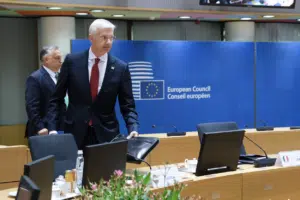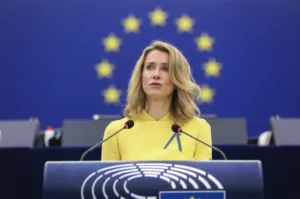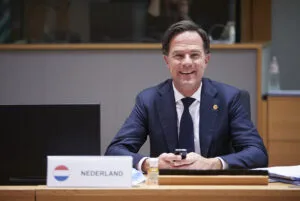Brussels -Not only European and US elections: 2024 is also a decisive year for the arrangements of NATO, the intergovernmental military alliance under whose umbrella the 31 European and North American members are united. The North Atlantic Treaty Organization is being called upon this year to elect the successor to Norway’s Jens Stoltenberg, incumbent secretary general since October 1, 2014. The race began a few months ago – after the one-year extension confirmed at the last NATO summit in Vilnius – but the first months of the year will be decisive in figuring out the balance of power among the candidates and reaching an agreement among the Alliance leaders on the name for the successor from October 1. In the spring, there could already be a decision to avoid overlapping election dates in Europe and the US. Hence, contacts and consultations inside and outside Brussels headquarters have intensified.

The pressure is coming in particular from the leaders of the Baltic countries, who, after the outbreak of war in Ukraine, trailed the European Union’s decisive response in support of Kyiv and now want to cash in. Speaking to Politico, Latvian foreign minister and former prime minister, Krišjānis Kariņš, explicitly put on the table the demand to lead the Atlantic Alliance: “Maybe the time has come for countries like Latvia,” which invested “about 2.4 percent of GDP in defense,” on the NATO commitment plan this year, over 2 percent minimum threshold. The selection of the NATO secretary-general takes place through informal diplomatic consultations among the member countries, who propose candidates for the post (traditionally a senior European political figure). There is no actual vote, but the decision is not confirmed until there is consensus on a candidate.

Estonian prime minister, Kaja Kallas
That is why it is important to consider the mood within the 31 NATO countries. Heavy-weights from Europe, like France and Germany, and the United States (waiting to find out who will be the next president, with the risk posed to the Alliance should Donald Trump be elected) fear that a Baltic leader of NATO could further exacerbate relations with Russia. Yet eyes are on another prominent figure from the same European geographical area, Estonia’s prime minister, Kaja Kallas. After confirming interest in the post last November, Kallas could be an option as – since its inception in 1949 – male politicians, never women, were at the head of the Organization. 2024 could be the breakthrough year on this front, with other possible names on the table: Danish Prime Minister Mette Frederiksen (although Copenhagen has already expressed the secretary-general between 2009 and 2014) and potentially the president of the EU Commission, Ursula von der Leyen, who has yet to untie the knot on whether she will run again for the EU Commission after the European elections in June, however.

Dutch Prime Minister, Mark Rutte
Excluding the gender issues and Baltic pressures, for now, the best option is the resigning Dutch prime minister, Mark Rutte. The 13-year Dutch leader defined as “interesting” the NATO secretary general post – after deciding not to run again in early elections that saw the victory of right-wing nationalists – although marked himself off by saying that “it would be very positive” to give the post to a female politician. However, the fact that he is one of the favorites was also confirmed in an editorial by former Atlantic Alliance spokesperson (until September 2023), Oana Lungescu: “Building consensus among NATO’s 31 allies is the main task of the secretary general,” and Rutte, “sometimes called the ‘Teflon Mark’ for his ability to lead diverse coalitions and survive political scandals, is a pragmatic dealmaker and a master of consensus.” In this sense, the Dutch premier forged relationships not only with Stoltenberg but also with other alliance leaders, from Albania to Lithuania, and from Poland to the United States.
The question of ties with Washington will be one of the decisive points for whoever succeeds Stoltenberg. Rutte has developed a very good relationship with President Joe Biden, and at the same time he is also one of the few European leaders to have tried to keep a steady relationship with his predecessor, Trump, who may return to the White House after the November elections. The Dutch premier’s weakness is that he has not yet aligned his country with the minimum threshold for defense spending, one of the most critical issues considering Trump’s attacks on European partners during his presidency. On the other hand, Rutte has carved out a role for himself as a reliable ally for Ukraine, having taken the initiative with Denmark’s Frederiksen of establishing an F-16 fighter pilot training center in Romania and sending Patriot air defense systems and Leopard tanks. The game of Stoltenberg’s succession to the NATO General Secretariat will also play out on this issue.
English version by the Translation Service of Withub




